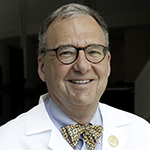Thanks to a grant from the St. Louis-based Edward Mallinckrodt Jr. Foundation, 21 physician scientist trainees in two clinical departments — Medicine and Pediatrics — at Washington University School of Medicine in St. Louis will receive research support.
Physician scientist trainees graduate with combined medical and doctoral degrees and usually pursue faculty positions that allow them to treat patients and conduct laboratory research.

Victoria J. Fraser, MD, the Adolphus Busch Professor and head of the Department of Medicine, said the Mallinckrodt Foundation gift comes at a crucial time, given the current cuts to National Institutes of Health (NIH) funding.
“This gift will provide more young scientists protection from the dire economic climate and make a tremendous difference in their careers,” she said. “It will provide critical support for young physician scientists so they can focus on their research and become successful independent investigators.”
The gift is being given in honor of the late Oliver M. Langenberg, who led the Mallinckrodt Foundation for more than 50 years. The physician scientist training programs in medicine and pediatrics will be renamed the Oliver Langenberg Physician Scientist Training Program.
The grant expands the Mallinckrodt Foundation’s support of physician scientist trainees at the medical school. Previously, the foundation supported three physician scientist trainees annually.
“This generous grant from the Edward Mallinckrodt Jr. Foundation will allow a major expansion of these programs,” said Stuart A. Kornfeld, MD, the David C. and Betty Farrell Professor of Medicine and co-director of the Department of Medicine’s physician scientist training program. “The programs have been extremely successful in attracting outstanding MD/PhD graduates to Washington University and in retaining most of them on the faculty. These individuals will be key in maintaining the tradition of outstanding biomedical research in the clinical departments of the medical school.”

Physician scientist training programs help graduates of MD/PhD and other joint degree programs pursue careers in academic medicine. The programs focus on the period after completing an MD/PhD, through the clinical and postdoctoral research training years, culminating in a full-time academic appointment. Washington University’s physician scientist training programs span six years, with the first three years devoted to clinical training and the last three years focused on research.
Spencer Burke, president of the Mallinckrodt Foundation, noted that Langenberg was fascinated by advancements in medical science, especially contributions made by physician scientists to improve the human condition. “He was so proud of the role of St. Louis and Washington University School of Medicine in these areas,” he said. “It is only fitting that the foundation focus a substantial portion of its resources on this physician scientist training program in his honor.”
Langenberg, a local businessman and philanthropist, grew up in St. Louis and graduated from Princeton University in 1935. After World War II, he worked at Gaylord Container and then moved to Mallinckrodt Chemical Co. In 1961, Langenberg began a new career with A.G. Edwards & Sons Inc., now Wells Fargo Advisors. At A.G. Edwards, he was a senior vice president for institutional sales and research, a member of the board of directors and head of the board’s finance committee. With Wells Fargo, he served as senior vice president of investments, going to the office almost every day until his death in 2012 at the age of 99.

Alan L. Schwartz, MD, PhD, the Harriet B. Spoehrer Professor and head of the Department of Pediatrics, said that the gift is a perfect way to honor Langenberg, who placed great value on developing future leaders. “Perhaps the most critical phase in the development of pediatric physician scientists is their initial launch during fellowship,” he said. “This award will significantly augment the support of a cadre of young, bright physician scientists of tomorrow.”
The Mallinckrodt Foundation was established in St. Louis in 1953 by Edward Mallinckrodt Jr. for the purpose of funding biomedical research throughout the United States. The foundation’s mission is to support early-stage investigators engaged in biomedical research that has the potential to advance significantly the understanding, diagnosis and treatment of disease.
The foundation has awarded more than $46 million in grants to more than 40 medical institutions throughout the United States. The foundation has provided research support for 48 faculty members at the School of Medicine since 1991, and its grants to the School of Medicine have totaled $14.6 million.
Washington University School of Medicine’s 2,100 employed and volunteer faculty physicians also are the medical staff of Barnes-Jewish and St. Louis Children’s hospitals. The School of Medicine is one of the leading medical research, teaching and patient-care institutions in the nation, currently ranked sixth in the nation by U.S. News & World Report. Through its affiliations with Barnes-Jewish and St. Louis Children’s hospitals, the School of Medicine is linked to BJC HealthCare.